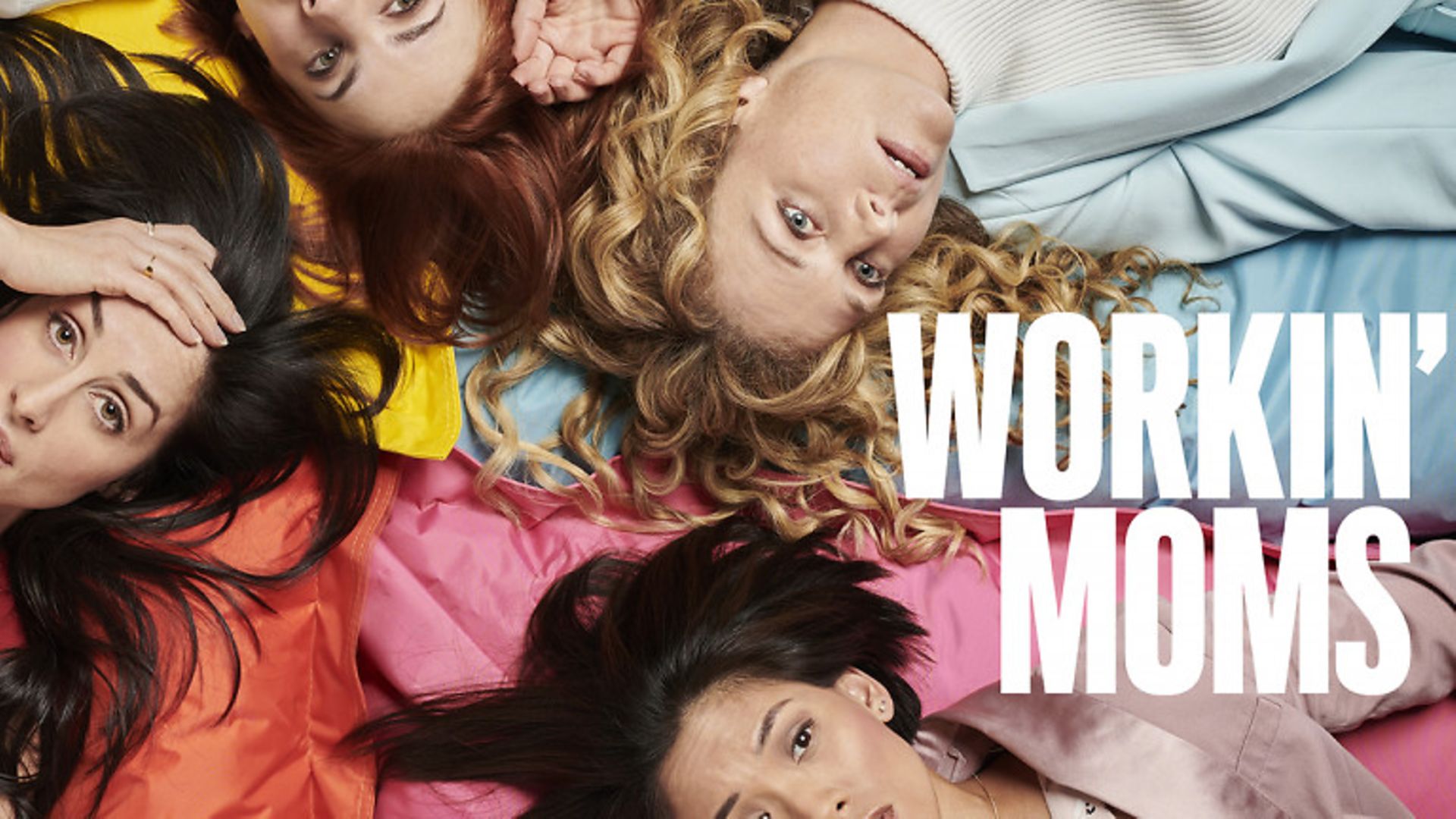
New Netflix series Workin’ Moms gets close to exploring some fascinating issues, but sticks to safer, more tedious territory
My best friend is, in her public life, a remarkably accomplished person who worked in an underserved charity sector for years and went on to use that knowledge to create new academic courses on the subject.
She’s got the sort of enviable yet unimpeachably empathetic and compassionate career that instantly softens the eyes of anyone who idly asks “And what do you do?” at a party, expecting to nod along at someone in advertising or HR.
Despite – or perhaps because of – her intelligence and ample achievements, she watches little but pure bonafide trash. She’s the one who turned me onto the neverending universe of Bravo reality television, and now we enjoy much the same sort of trash, have shared enough hangovers to know that our more lowbrow tastes run together smoothly.
Still, when she asked me this week what I’ve been watching I was a little embarrassed to tell her it’s been a sitcom about new mothers returning to the workforce, Workin’ Moms. Not because it’s a bad show, exactly, though it has its moments, but because of that hideous hanging apostrophe in the title.
Come on, I thought when I clocked it first, how transparently relatable are you trying to be? How clearly could you be angling towards the sort of earthy home-spun wisdom and truth-telling one might desire from a Dolly Parton song? And who, in the affluent Toronto suburbs the show is set in, is dropping the “g”s from the end of their verbs?
Workin’ Moms is a hugely successful transfer from the public Canadian Broadcasting Corporation (CBC), whose fifth season recently launched on Netflix. It follows the journeys of four women from the point at which their maternity leave is elapsing and they must transition back to life outside the family cocoon.
Kate, the central character played by show creator Catherine Reitman, loves her high-flying PR job but finds herself caught constantly having to choose between being successful at it and being present for her son.
Anne is a bluntly spoken psychologist with anger issues who is dealing not only with an infant but also a nine-year-old girl acting out with inappropriately sexual behaviour and clothing.
Frankie is a dippy real estate agent who is suffering from postpartum psychosis. And Jenny is a young, cute mother initially terrified to go back to her boring IT job and then quickly reaffirmed by the external validation; she begins to struggle free from the demands of family, disdaining the benign affections of her dopey stay-at-home husband and inclining towards partying and rebellion and a potential affair with a hyper-masculine boss.
A confession, before I go into what works in the show and what doesn’t: I watch it with a sense of indulgent prurience, because I don’t have children and I don’t want them. I’m of an age – 31 –where some people ominously warn me that I’ll change my mind about this overnight and ought to have one just in case, or at least freeze my eggs.
And yet why would I take measures to cover the possibility of my suddenly wanting children when there has never been a day in my life when I’ve even wondered if I might? I’ve considered the issue of course, mostly at times I’ve fallen in love with somebody and must take their measure on it or just want to prod around my own psyche to see if it’s made any difference.
But no, nothing has – not falling in love with somebody kind and stable, not earning more money than I used to, not getting into my 30s. It seems just as inconceivable an idea to consciously make the choice as it ever has.
I remember being told the story of one friend who, experiencing the physical transformation of late pregnancy, was intensely disturbed and frightened of the cataclysmic event about to take place in and around her body.
She tried to explain to her partner how she was feeling and told him to imagine that his body had stretched and drastically altered and was about to have a foreign entity emerge from it.
“Well if you imagine that feeling, that’s what I’m feeling right now. It’s just as weird for me as it would be for you!” she tried to explain. That biology says otherwise doesn’t necessarily make it feel natural, or alright.
Add to this the fact that I struggle sometimes to adequately take care even of myself – to feed myself, bathe, exercise, work, socialise, and sleep all in one day feels mostly impossible – it would be a dreadful decision.
The kid wouldn’t get out of the womb without me resenting it taking all my meagre energy up. That’s why I’m awed and fascinated by working mothers.
How do they fit it all in, even in a slapdash incompetent manner, let alone with any elegance? How can they stand seeing their male partners praised for the bare minimum while they struggle to stay afloat? How do they resist the urge to just sack it all off and fly to Mexico never to be heard from again?
Workin’ Moms addresses a number of important questions including some I’ve raised here.
We see the snide derision of colleagues without children, we see judgemental fellow mothers who have chosen to parent full time, we see unequal expectations on fathers even when they’re committed and kind.
These are in no way small problems to endure and it’s evident that many viewers are eager to see them play out as they do in Workin’ Moms, with the emotional frankness as well as the mildly outre comedic chops which the show nails.
The problem is that anything a little knottier, a little less typical doesn’t receive the same care. Frankie’s postpartum psychosis leads her to be suicidal, slipping beneath bathwater, but this is bizarrely played mostly for laughs and is then retired as a storyline with uncanny abruptness and without ever seeming all that serious despite the literal threat to life.
Jenny, meanwhile is tasked with quite an interesting and rarely spoken of situation – she’s simply not a very good mother, and she wishes she could stop being one.
Initially, her discomfort and confusion are worked through interestingly and sensitively and surprisingly, but quite quickly she becomes a caricature, totally heartless and without shame or fear or regret, just a callous psychopath who doesn’t give a thought to her baby or abandoned husband.
The most crucial flaw, though, is the fact that the work of these Workin’ Moms is so apparently unnecessary. It’s as though the show’s creator and writers have somehow forgotten that the purpose of work is to make money rather than to generate self-esteem and interesting human dynamics.
Everyone is wealthy enough to have nannies or stay-at-home partners, nobody’s return to work is because they need to do so financially. Work is either to reinforce a sense of power – in Kate’s case – or almost totally unmentioned and irrelevant and seemingly unrelated to survival, as in Frankie and Jenny’s case.
The problems working mothers face are many, and they are vital to address for anyone interested in a progressive and just society.
But this is not chiefly to do with personal slights and bruised egos and rolled eyes at the expensive kindergarten, but rather the fact that mothers make significantly less money than both their male and their childless women counterparts and for most people, unlike those in Workin’ Moms, money is not an incidental part of life.
Warning: Illegal string offset 'link_id' in /mnt/storage/stage/www/wp-includes/bookmark.php on line 357
Notice: Trying to get property 'link_id' of non-object in /mnt/storage/stage/www/wp-includes/bookmark.php on line 37







